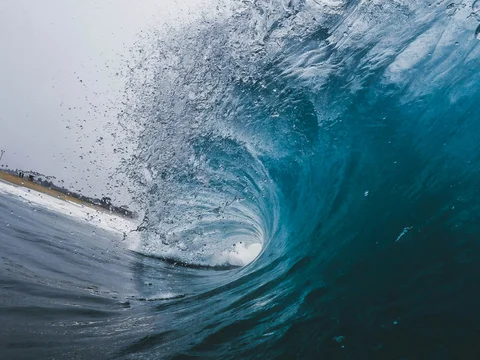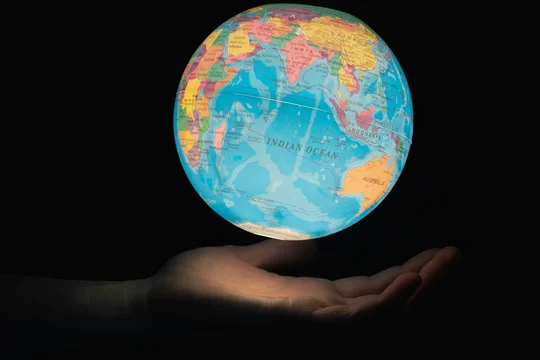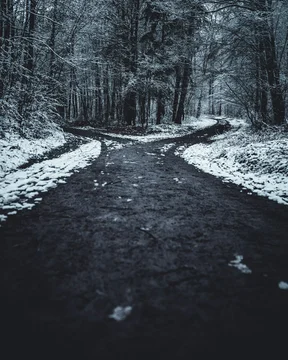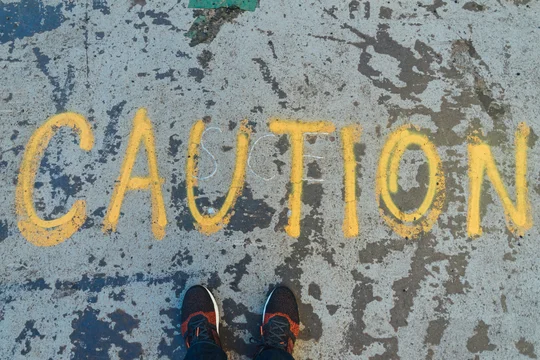
There's a patent trial starting on Monday in Ferring Pharmaceuticals Inc. v. Finch Therapeutics Group, Inc., C.A. No. 21-1694-JLH (D. Del.), and filings are flying back and forth across the docket this week. The Court's order on motions in limine included this line, which piqued my interest:
To say that the Court is troubled by the occurrences to date would be an extreme understatement.
What was so troubling? It's tough to decipher exactly what is going on from the docket, which is fragmented and redacted. But it has to do with the parties' actions related to an inventor of certain of the asserted patents.
As far as I can tell, the allegations are that the inventor was set to sit for a deposition during fact discovery, but at the last moment he suddenly demanded a $50 million (AU?) payment from the patentee, and then canceled the deposition when the patentee didn't pay.
The patentee alleges that, after the inventor canceled, the accused infringer said they were not going to rely on the inventor's testimony—only to then set up a secret consulting agreement with him, collecting his documents and ultimately producing them just two months before trial. They also listed him as a trial witness to support an argument that the patentee lacked standing because they didn't own the patents.
On top of that, the accused infringer then moved for an adverse inference against the patentee for "allowing" the inventor to cancel his deposition—but their motion did not tell the Court about their consulting agreement with the inventor. The Court was not pleased.
Here are the details, based on the documents:
- The inventor initially cooperated with the the patentee and was represented by the patentee's counsel. D.I. 424-3, Ex. 17.5, opening at 1.
- Days before his scheduled deposition, another attorney for the inventor stepped in and asked the patentee for a $50 million payment (possibly in AU dollars) before the deposition. Id. at 1-3; D.I. 424-4, Ex. 18.5, opening at 2. The inventor claimed that he was never paid for his patents. D.I. 424-4, Ex. 18.5, answering at 2.
- The patentee alleges that, at some point, the inventor "began working in secret" with the accused infringer. D.I. 424-3, Ex. 17.5, opening at 2.
- The accused infringer then "declared . . . that discovery was closed and there would be no deposition" of the inventor, and that "it was 'not 'relying on' [the inventor's]' allegations to prove its arguments." Id. at 2-3.
- The accused infringer nonetheless ultimately listed the inventor as a "may call" witness for trial. D.I. 424-3, Ex. 17.5, answering at 2.
- About two months before trial, the accused infringer produced documents from the inventor. Id. at 1-2.
- The patentee moved in limine to preclude the late-produced documents, id. at 1-3, and the accused infringer responded that they are relevant to patent ownership and standing. Id., answering at 1-3.
- The accused infringer simultaneously moved for an adverse inference "that [the inventor's] testimony would have been unfavorable to [plaintiff]" because the plaintiff "allowed [the inventor] to unilaterally cancel his deposition." D.I. 424-4, Ex. 18.5, opening at 1. They argue that they "do[] not know what [the inventor] would have said at that time [the time of his deposition]." Id., reply at 1.
- The accused infringer then revealed the consulting agreement that it has with the inventor, in which the inventor will be paid AU $30,000 per day plus travel expenses for his testimony at trial. D.I. 418; D.I. 433 at ¶ 4.
In response to all of this, after the pretrial conference, the Court issued the following order requiring that the inventor appear at a hearing, and describing the various questions it had about the circumstances and the whole arrangement:
[Various filings] all relate to the documents and testimony of Dr. Borody, a named inventor of the asserted Finch patents. To say that the Court is troubled by the occurrences to date would be an extreme understatement. The parties shall appear in person with [the inventor] in Courtroom 6D at 4:00 p.m. on July 31, 2024. Topics for discussion, testimony from [the inventor], and/or questioning by the Court may include, but are not limited to, (i) why Ferring didn’t tell the Court at the pretrial conference that it had a “consulting” agreement with [the inventor], especially in light of the fact that, at the pretrial conference, Ferring requested sanctions to cure alleged prejudice arising from the cancellation of [the inventor]’s deposition in 2023; (ii) why Ferring didn’t produce its June 4, 2024 consulting agreement with [the inventor] and his July 10, 2024 declaration until July 25 or 26 (after the pretrial conference); (iii) whether Ferring can support the reasonableness of compensating [the inventor] AU $30,000 per day plus travel expenses for his service as a fact witness; (iv) whether [the inventor] is receiving any other compensation from Ferring, regardless of whether it relates to his service as a fact witness, and whether Ferring has produced all of its communications with [the inventor] or his attorney(s); (v) the topics on which Ferring seeks to have [the inventor] testify and whether any of those topics constitute impermissible expert testimony from a fact witness; (vi) Finch’s involvement in the cancellation of [the inventor]’s deposition in 2023; (vii) whether, notwithstanding the fact that Finch never moved for summary judgment on the issue of ownership of the Finch patents, the Court should exercise its discretion under these unusual circumstances to require Ferring to proffer [the inventor]’s testimony to the Court before it may be presented to the jury; (viii) the relevance and admissibility of TX-3453,TX-3581, and any other document Ferring seeks to introduce through [the inventor]; and (ix) why an alleged failure to pay full consideration under a patent assignment agreement results in a written assignment made pursuant to that agreement being “void” (D.I. 209 at 16) or otherwise invalid.
D.I. 433, ¶ 4. Ouch.
So how did it go? It looks like the Court was, at a minimum, not pleased. Here is the order the Court entered after the conference:
ORAL ORDER: [A]s discussed extensively with the parties at the hearing on July 31, 2024, the Court has taken under advisement and is actively considering whether some or all of the testimony of Dr. Borody should be excluded pursuant to one or more of the following: the Court's inherent power to manage its own affairs so as to achieve the orderly and expeditious disposition of cases and protect the integrity of the proceedings; the Court's inherent power to sanction bad faith litigation conduct; the Court's inherent power to address violations of Delaware Rules of Professional Conduct 3.3, 3.4, and 4.1; the Court's inherent power to exclude fact witnesses as a sanction for the wrongful payment of fact witnesses, see, e.g., Rocheux Int'l of New Jersey v. U.S. Merchants Fin. Grp., Inc., No. 06-6147, 2009 WL 3246837, at *4 (D.N.J. Oct. 5, 2009); the Federal Rules of Evidence (including but not limited to FRE 402, 403, 701, and 802); and the Court's case management orders and the Federal Rules of Civil Procedure (including but not limited to FRCP 16, 26, and 37). In light of the fact that jury selection begins tomorrow and this issue has taken up--and actively continues to take up--a significant amount of the Court's time and resources, IT IS ORDERED that counsel for Ferring shall confirm by letter to the Court by 6:00 p.m. today that it will be calling Dr. Borody as a witness if permitted to do so.
D.I. 440. The Court also excluded some of the documents the accused infringer produced from the inventor, finding that "Ferring's counsel had access to and possession of these two documents well before they were produced to Finch, and counsel offered no persuasive explanation as to why they weren't disclosed earlier." Id.
Later that same day, the accused infringer's counsel filed a letter informing the Court that it was dropping the inventor as a witness. Id., D.I. 448. In fact, it filed a second letter that day that went further, dropping its entire patent ownership defense. Id., D.I. 454.
Needless to say, the accused infringer did not get their adverse inference.
If the patentee wins, we might see an interesting opinion on § 285 fees and enhanced damages. Meanwhile, I bet the transcript of that hearing will be a great read as well. If it gets docketed and eventually becomes public, we may have another post about it.
[NOTE: This post was updated to refer to the "patentee" and "accused infringer" rather than the previously incorrect plaintiff/defendant designations]
If you enjoyed this post, consider subscribing to receive free e-mail updates about new posts.






